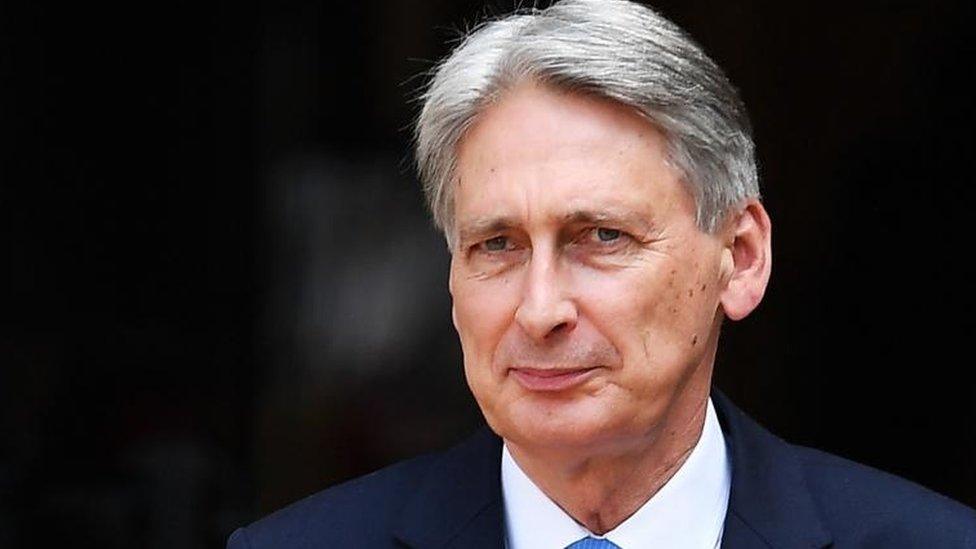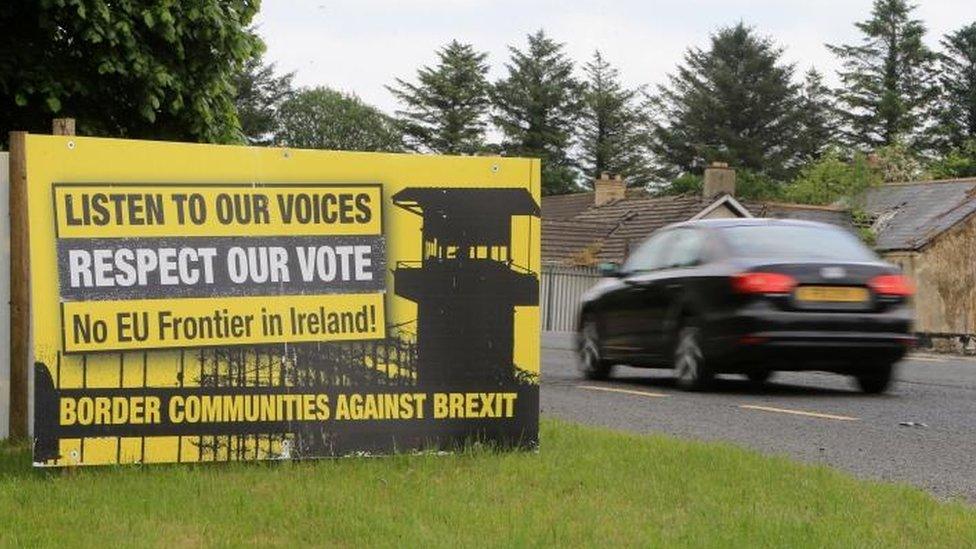Submarine Treasury plays 'softest' Brexit card
- Published
- comments

The Treasury’s economic argument has gained traction in government talks
When Boris Johnson, the Foreign Secretary, described the Treasury as the "heart of Remain" he was only partially correct.
When a Cabinet minister said directly to me when asked about relations with Philip Hammond, "Well, he's a Remainer", that person missed the target.
Mr Hammond and the Treasury have long since given up on any idea that the UK can remain a member of the European Union.
But, at heart, the most powerful department in government - and many forget that is still true despite the "spreadsheet Phil" dismissal of his critics - believes that the closest possible relationship with the European Union is the only way to reduce the potential of lasting economic damage to Britain post-Brexit.
Whilst others such as Mr Johnson and David Davis, the Brexit Secretary, have dominated the headlines, the Treasury has played it differently.
Submarine would be a good descriptor.
Under the surface, the department has focused its most senior people on persuading departments across government of two things.
First, that the economic and trading links between Britain and the rest of the EU are so deep and intractable that a sharp and irrevocable split would carry perilous risk.
From that argument came agreement to a "transition period" following the UK's official departure from the EU next March.
Second, that open economies such as Britain depend on goods being traded freely across borders and that the way to achieve this with the UK's biggest customer, the EU, was via some form of customs deal.
From that argument came the "facilitated customs arrangement" the Cabinet is discussing at Chequers today.
A system that ties the UK so closely to EU regulations and processes that free-trade deals with other counties, such as America, become difficult to the point of impossible.

The border between Northern Ireland and the Republic is a key factor
In its arguments for the softest of soft Brexits, the Treasury has had some allies.
The first is not a person, but a thing - the border between Northern Ireland and the Republic.
Only via close alignment with the EU can there be any hope that the border can be kept free of customs checks, a key requirement, given the Good Friday agreement, of both the UK government and the EU.
The second is Greg Clark, the Business Secretary, who spoke yesterday of the need to listen "with the greatest respect" to companies such as Jaguar Land Rover when it said that billions of pounds of investment were at risk and jobs could be lost if barriers were suddenly thrown up between Britain and the EU.
In his interview with me in Newcastle yesterday, Mr Clark also executed a subtle but significant change of language.
Not that, when it came to goods, Britain would attempt a deal with the EU as friction free "as possible".
But that it would attempt a deal that was friction free, period.
That means some form of customs union on goods with the EU.
Third is economic growth, which the Bank of England has said is up to two percentage points below where it was expected to be had Brexit uncertainty not weighed on business investment decisions and consumer spending power.
The real world effects of the referendum, the Bank said, were "material".

Jaguar Land Rover has said a "bad" Brexit deal would threaten £80bn worth of UK investment
Of course, the Treasury has not yet "won" anything.
The Cabinet has not agreed to the latest Brexit plan.
Opponents of Mr Hammond's approach say that "close alignment" means the result of the referendum has not been respected and opportunities to exploit new global trade deals could be lost.
The "facilitated customs arrangement" relies on technological gymnastics so intricate the systems do not yet exist and no other country in the world has attempted to follow a similar path.
The European Union is wary of any deal that could be portrayed as giving Britain "preferential treatment".
The "having cake and eating it" problem still remains.
But, given that just over a year ago the headlines were talking of Theresa May's plans to sack the Chancellor, Mr Hammond will be at Chequers knowing that the Treasury's submarine approach appears to have secured at least the beach-head towards the softest of soft Brexits.
- Published6 July 2018

- Published5 July 2018

- Published5 July 2018
